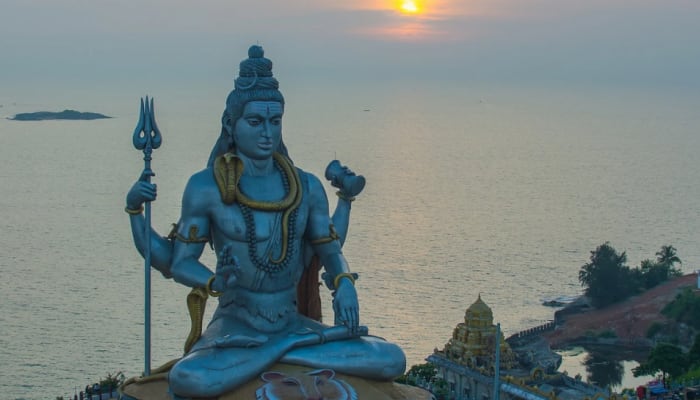Introduction
Shivratri, also known as “The Great Night of Lord Shiva,” is one of the most revered and widely celebrated festivals in Hindu culture. Dedicated to Lord Shiva, the supreme deity of destruction and transformation, Shivratri holds immense religious and spiritual significance.
This article delves into the origins, rituals, and cultural significance of Shivratri, highlighting how devotees across India and beyond come together to honour and seek the blessings of Lord Shiva on this auspicious occasion.
- The Legend of Shivratri
The festival of Shivratri finds its roots in ancient Hindu mythology. According to legend, it is believed that on this night, Lord Shiva performed the “Tandava,” a divine dance of creation, preservation, and destruction. This cosmic dance symbolizes the eternal cycle of life, death, and rebirth. Devotees observe Shivratri to commemorate this celestial event and express their devotion to Lord Shiva.
- Significance of Shivratri
Shivratri holds profound spiritual significance for devotees of Lord Shiva. It is believed that sincere worship and penance on this night can lead to the fulfilment of desires, liberation from worldly attachments, and the attainment of spiritual enlightenment. Shivratri is also considered an opportunity to seek forgiveness for past mistakes and to strengthen one’s resolve to follow the path of righteousness.
- Rituals and Traditions
Shivratri is marked by a series of rituals and customs that vary across different regions of India. Devotees observe a day-long fast, abstaining from food and consuming only fruits, milk, or water. They visit Shiva temples and offer prayers, milk, water, and Bilva leaves (considered sacred to Lord Shiva) to the Shiva Lingam, the symbolic representation of the deity.

Throughout the night, devotees engage in continuous chanting of “Om Namah Shivaya,” the sacred mantra associated with Lord Shiva. Many also perform Rudra Abhishekam, a ceremonial bathing of the Shiva Lingam with holy substances such as milk, yoghurt, honey, and ghee. The atmosphere is filled with devotional fervour, hymns, and bhajans dedicated to Lord Shiva.
The Twelve Jyotirlingas and Shivratri
Shivratri holds even greater significance at the twelve Jyotirlinga temples, believed to be the abodes of Lord Shiva in his radiant form. These sacred sites, spread across different parts of India, witness a surge of devotees during Shivratri.
The Somnath Temple in Gujarat, Kashi Vishwanath Temple in Varanasi, and Mahakaleshwar Temple in Ujjain are some of the most popular Jyotirlingas where elaborate celebrations take place on Shivratri.
- Regional Celebrations
Shivratri is celebrated with unique cultural and traditional customs in various regions of India. In Varanasi, the holiest city in Hinduism, Shivratri is an extravagant affair with a grand procession of Lord Shiva’s idol through the streets. In Himachal Pradesh, the festival is marked by vibrant folk dances and music performances. In Andhra Pradesh and Telangana, devotees create clay idols of Lord Shiva and offer special prayers.
- Symbolism and Spiritual Significance
Shivratri holds deeper symbolism beyond the religious and cultural celebrations. Lord Shiva, often referred to as the “Mahadeva” or the Great God, represents the unmanifested supreme consciousness. His qualities of destruction, detachment, and transcendence symbolize the shedding of ego, attachments, and negative tendencies to attain higher spiritual consciousness. Shivratri serves as a reminder for individuals to introspect, purify their thoughts, and seek spiritual awakening.
- Shivratri Beyond India
Shivratri is not limited to India; it is celebrated by Hindu communities around the world. Countries such as Nepal, Sri Lanka, Mauritius, and Bali also observe this festival with great devotion and enthusiasm. Hindu temples outside India organize special prayers, cultural events, and discourses to mark the occasion. The global celebration of Shivratri highlights the universal appeal and significance of Lord Shiva in Hinduism.
- Shivratri and Modern Relevance
In the modern era, Shivratri continues to hold immense relevance and appeal. The festival not only reinforces the spiritual connection with Lord Shiva but also promotes unity, devotion, and cultural preservation. It serves as a platform for social gatherings, cultural performances, and community service activities that bring people together in a spirit of devotion and harmony.
Conclusion
Shivratri, the auspicious night of Lord Shiva, is a cherished festival that symbolizes devotion, spiritual enlightenment, and the eternal cosmic dance of creation and destruction. The festival’s rituals, traditions, and regional celebrations foster a sense of unity and cultural preservation among devotees. Shivratri transcends borders, captivating the hearts of millions of Hindus worldwide. It remains an occasion to express reverence, seek blessings, and embark on a spiritual journey towards self-realization.

















